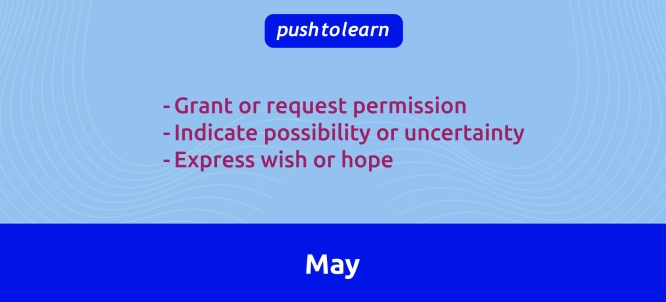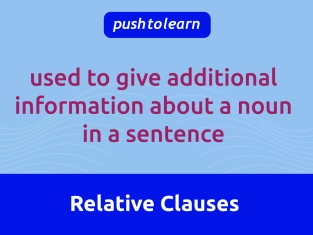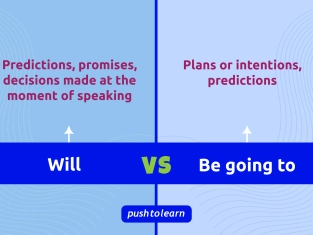by PushtoLearn
Modal Verb May
Table of Contents
Modal Verb May – Exercises
These exercises focus on May
What is May?
"May" is a modal verb used to:
-
Grant or request permission
-
Indicate possibility or uncertainty
-
Express wish or hope (less commonly)
Like other modal verbs, "may" is followed by the base form of the main verb.

Uses of May
1. Permission
"May" is often used to give or ask for formal permission.
Examples:
-
You may leave the room once you’ve finished.
-
May I borrow your book, please?
2. Possibility or Uncertainty
Use "may" to express something that could happen or might be true.
Examples:
-
It may rain this afternoon, so bring an umbrella.
-
He may know the answer, but I’m not sure.
3. Expressing Wishes (Formal or Literary Use)
In more formal or literary contexts, "may" is used to express wishes or hopes.
Examples:
-
May you have a wonderful birthday!
-
May peace be with you.
Rules for Using May
-
"May" is always followed by the base form of the verb (without "to").
✅ Correct: You may sit here.
❌ Incorrect: You may to sit here. -
The negative form is "may not" (there is no contraction like "mayn’t").
✅ Correct: You may not enter this area.
❌ Incorrect: You don’t may enter this area. -
"May" does not change with the subject.
✅ Correct: She may attend. / They may attend.
❌ Incorrect: She mays attend.
Common Errors with May
|
Error |
Why It’s Wrong |
Correct Form |
|
May you to help me? |
"To" is not needed after "may." |
May you help me? |
|
He mays not come today. |
"May" does not take an "s." |
He may not come today. |
|
I don’t may use the phone. |
Use "may not" instead of "don’t may." |
I may not use the phone. |
Everyday Use of May
Here are common ways to use "may" in daily conversations:
|
Situation |
Example Sentence |
|
Asking for permission |
May I use your phone for a moment? |
|
Granting permission |
You may take a break now. |
|
Discussing possibilities |
We may go to the park if it’s sunny. |
|
Expressing uncertainty |
She may not have seen the message. |
Difference Between May and Similar Modal Verbs
|
Modal Verb |
Use |
Example |
|
May |
Formal permission or possibility |
You may leave early. |
|
Might |
Less formal or less certain possibility |
He might be late to the meeting. |
|
Can |
Informal permission or ability |
You can borrow my pen. |
FAQ About May
Can "may" be used in the past?
No, for past possibilities, use "might have" + past participle.
Example: She might have missed the bus.
What’s the negative form of "may"?
The negative form is "may not."
Example: You may not park here.
What’s the difference between "may" and "might"?
-
"May" indicates a higher likelihood or formal possibility.
-
"Might" is less formal and suggests a lower degree of certainty.
Example: It may rain later (more likely). / It might rain later (less certain).
How do you form a question with "may"?
Place "may" at the beginning of the sentence.
Example: May I have a moment of your time?
Is "may" formal or informal?
"May" is more formal and polite compared to "can" for permission.

